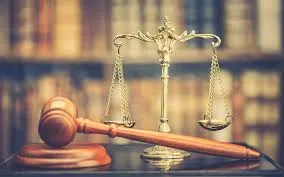When pursuing a personal injury claim, meticulous documentation of your injury is crucial for building a strong case. Properly gathered evidence can significantly influence the outcome, ensuring you receive fair compensation. In this article, a personal injury attorney in St. Louis will provide essential advice on documenting your injury effectively, focusing on gathering evidence and maintaining comprehensive records.
Understanding The Importance Of Evidence
Evidence is the backbone of any personal injury claim, providing the factual basis to support your case. Without adequate documentation, proving the extent of your injury and its impact on your life can be challenging. Strong evidence can convince insurance companies or a jury of the legitimacy of your claim, potentially leading to better compensation. It also helps counter any attempts by the opposing party to downplay or dispute your injuries. Thus, understanding the types of evidence required and how to collect them is vital for success.
Medical Records: The Foundation Of Your Claim
Medical records are often the most critical component of injury documentation. They offer a detailed account of your injury’s diagnosis, treatment, and prognosis. Ensure you seek medical attention immediately following the incident to establish a clear link between the accident and your injuries. Keep a record of every medical visit and treatment, including hospital stays, doctor consultations, and therapy sessions. Moreover, request copies of all medical reports, test results, and prescriptions to have a complete record of your medical history related to the injury.
Photographic Evidence: Capturing The Details
Photographic evidence can provide a compelling visual representation of your injuries and the accident scene. Take clear, well-lit photos of your injuries as soon as possible after the incident and continue to document the healing process over time. Capture images of the accident scene from various angles, focusing on any hazards or conditions that contributed to the incident. If applicable, document any damage to property, such as vehicles, to further support your claim. These photographs can effectively illustrate the severity of your situation and serve as persuasive evidence in court or during settlement negotiations.
Witness Testimonies: Strengthening Your Narrative
Witnesses can play a crucial role in corroborating your version of events. Collect the contact information of any witnesses present at the accident scene. Obtain written or recorded statements detailing what they saw, ensuring the testimony is clear and accurate. Witness statements can help confirm the circumstances of the accident and validate your claims about its impact. In cases where witness credibility is strong, their testimonies can be a powerful tool in reinforcing your case.
Keeping A Personal Injury Journal
Maintaining a personal injury journal can provide a detailed account of how your injuries affect your daily life. Record your physical symptoms, pain levels, and any emotional distress or challenges you experience. Include notes on how the injury impacts your ability to work, participate in activities, and engage with family and friends. A well-maintained journal can demonstrate the ongoing effects of your injury, helping to substantiate claims for pain and suffering or loss of enjoyment of life. It also serves as a personal record that can refresh your memory during legal proceedings.
Collecting Other Relevant Documentation
Beyond medical records and testimonies, there are other essential documents to gather. Obtain copies of any police or incident reports, which can provide an official account of the accident. Keep all receipts and invoices for medical treatment, medications, and other expenses incurred due to the injury. If your injury affects your work, maintain records of lost wages, including pay stubs or employer correspondence. These documents collectively provide a comprehensive view of the financial implications of your injury, supporting your claim for damages.
Working With Legal Professionals
Engaging with a personal injury attorney can enhance your ability to document your injury effectively. Attorneys have experience identifying and collecting necessary evidence, ensuring your documentation is thorough and organized. They can advise on additional evidence that may strengthen your case and help you navigate the legal requirements for presenting evidence. A knowledgeable attorney can also manage communications with insurance companies, alleviating the burden and ensuring your interests are represented.
Conclusion
Proper documentation is essential for building a robust personal injury case. The personal injury attorney in St. Louis recommends gathering comprehensive evidence, maintaining detailed records, and seeking legal guidance to enhance your claim’s strength significantly. These steps will help secure fair compensation and protect your rights throughout the legal process. Careful and consistent documentation can make a substantial difference in the outcome of your personal injury case.










